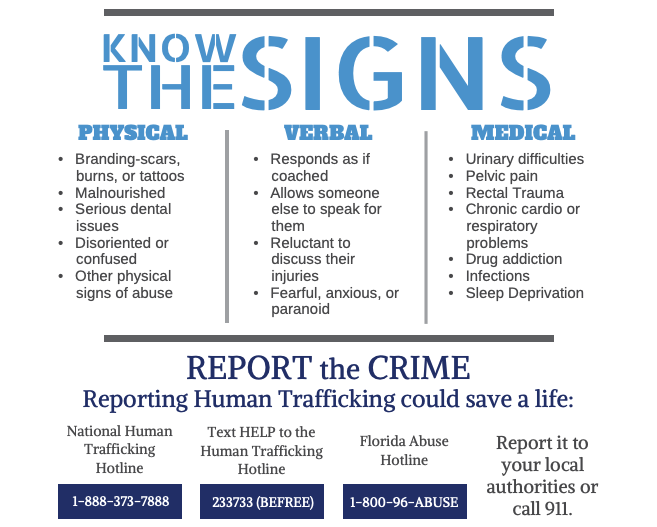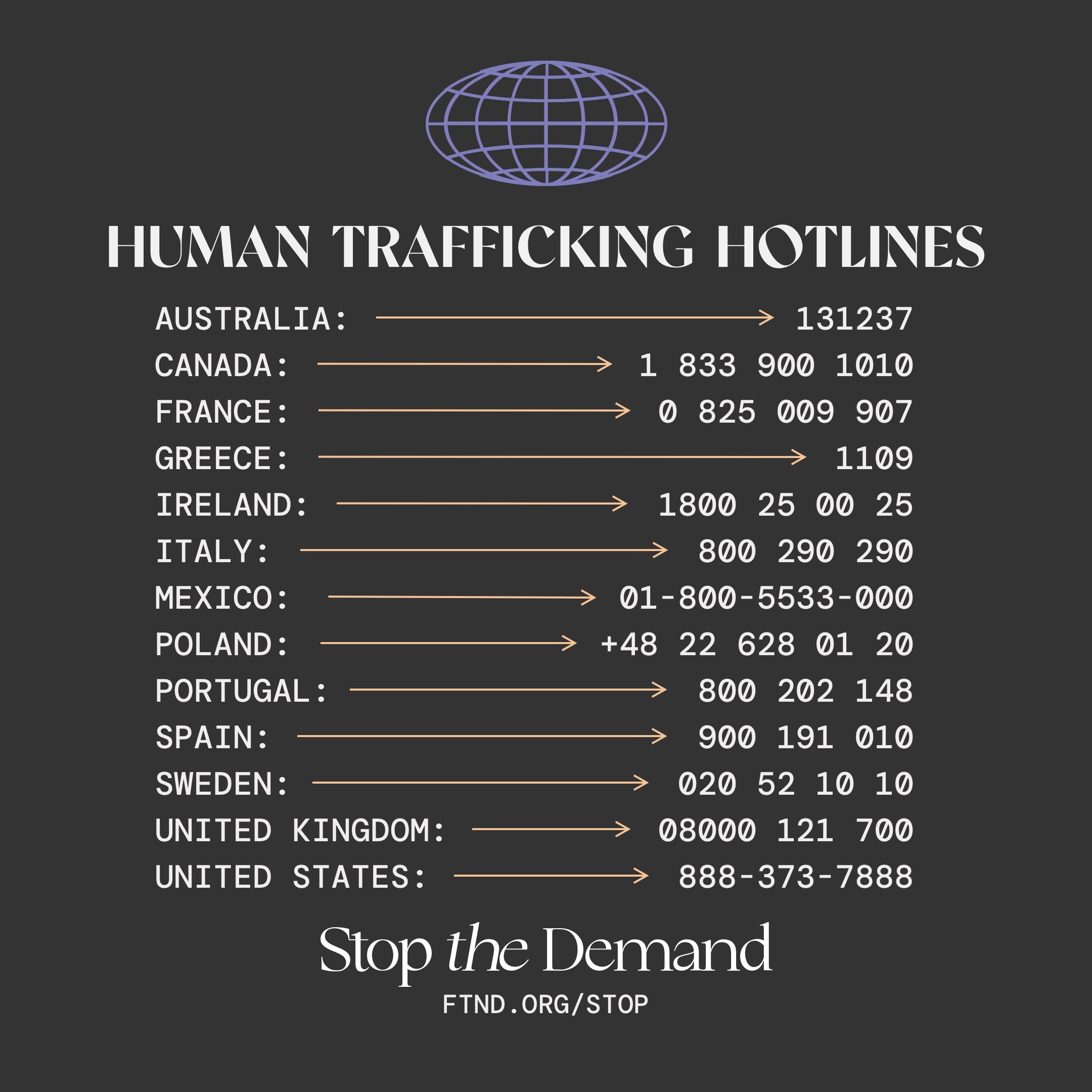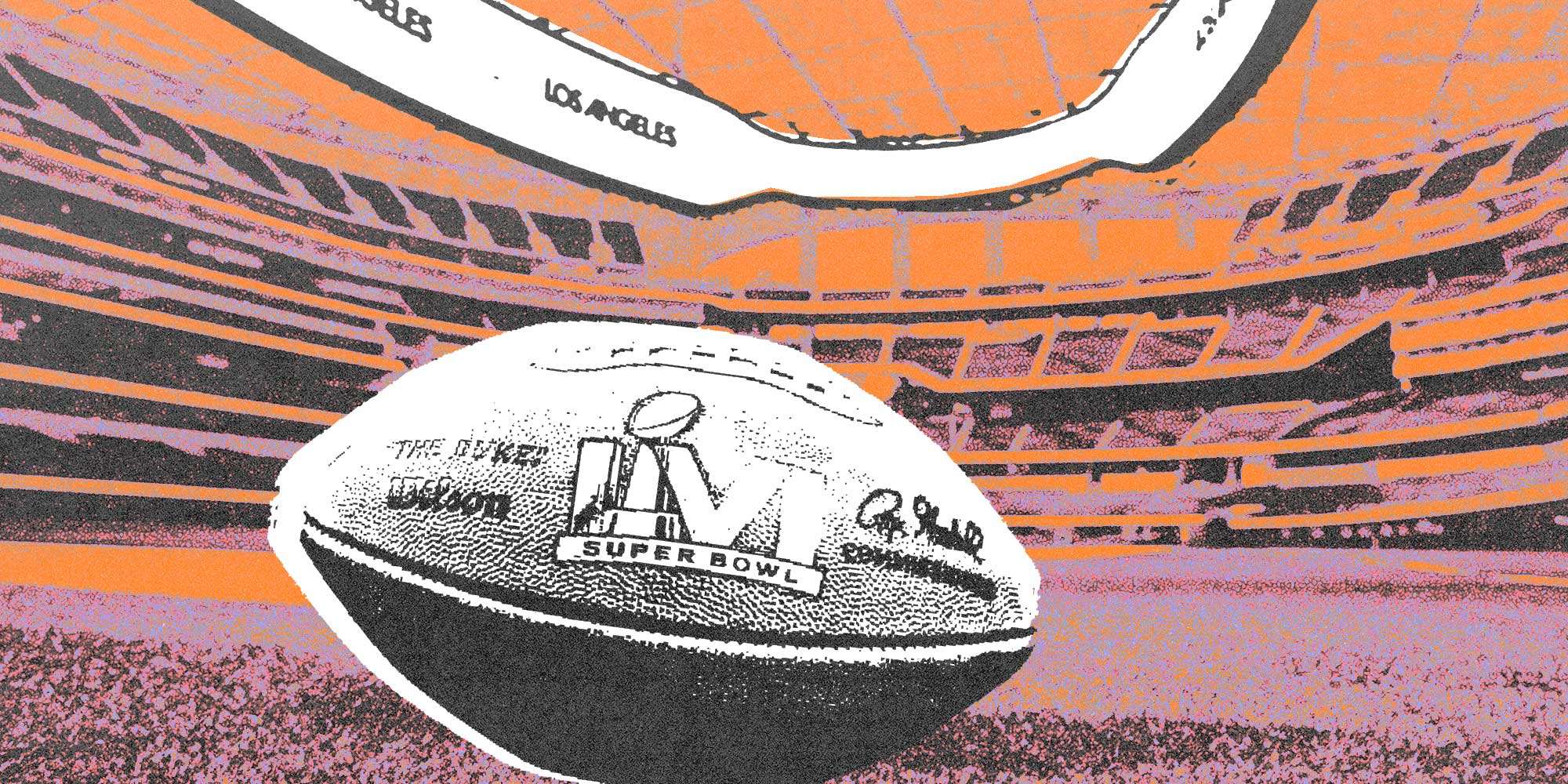Sex trafficking is a global issue 365 days out of the year (and 366 days on leap years).
The reality is, Super Bowl Sunday is not a particularly special event where human trafficking exclusively happens, but the event notably increases tourism. And where there’s increased tourism, research shows that human trafficking can potentially spike.
It’s important to note, though that as anti-trafficking organization Polaris says, “While traffickers are savvy business people and go where the demand is, they also know where law enforcement is focusing their efforts and are constantly changing their tactics. Over the last few years, law enforcement agencies have significantly increased the resources they allocate to combatting human trafficking leading up to and during the game.”
So what has host city Los Angeles been doing to curb potential trafficking ahead of the big game, and will it actually help?
Related: 9 Popular Conspiracy Theories About Sex Trafficking, Debunked
ABC7 reports that there are signs in the terminals at Los Angeles International Airport alerting people about what to do if they suspect there is human trafficking around them since law enforcement officials say it’s sometimes not easy to spot.
“It could be a young woman having her belongings taken away and coerced into working as a housekeeper until a debt is paid. It could be a child coerced into prostitution,” California Attorney General Rob Bonta said at a news conference a week before the game.
KTLA reports that a greater focus will be placed on the streets around SoFi Stadium before and after the Super Bowl, and the Los Angeles County Sheriff’s Department’s Special Victims Bureau will be working to rescue and provide services to victims of exploitation, officials said.
“Last year during the (Tampa Bay) Super Bowl, 18 children from a similar list that we helped to distribute were identified in the hotels and motels,” said Sarah De Carvalho, CEO of It’s a Penalty, an organization that works to prevent abuse, exploitation, and human trafficking worldwide.
Watch: How Porn Fuels Sex Trafficking
Reportedly, U.S. Customs and Border Protection says it keeps a watch for those entering the country.
“Although we are doing specific operations for the Super Bowl, we see this type of activity day in, day out, especially when there’s any type of high visibility or high revenue event in the city,” said Carlos Martel, an agent for U.S. CBP.
Polaris also says, “The awareness raised about sex trafficking leading up to the Super Bowl helps to increase public knowledge that this crime exists in our communities. However, that awareness shouldn’t be limited to only sex trafficking, the [city where the Super Bowl is held], or the big game. Victims of sex and labor trafficking need help and services throughout the year.”
So what can make someone vulnerable to sex trafficking, and how can the average person combat it?
What to do if you suspect trafficking
Law enforcement officers say one of the key components to cracking down on human trafficking long term is having the public be able to spot the signs.
The increased attention around the Super Bowl is good, according to Megan Cutter the Director of the National Human Trafficking Hotline, but the attention should last year-round.
Here’s a helpful guide posted to YouCanStopHT.com to help train the public to know what to look for.

This helpful guide informs the public of how to spot human trafficking. Image from YouCanStopHT.com.
The National Human Trafficking Hotline has also put together a comprehensive—but not exhaustive—list of common “signs” that a person might be in a trafficking situation. Check out the full list if you get a chance, but here are some examples.
Related: Did You Know Men And Boys Can Be Victims Of Sex Trafficking, Too?
Consider reporting a situation if the individual in question:
- Is not free to leave or come and go at will
- Is unpaid, paid very little, or paid only through tips
- Owes a large debt and is unable to pay it off
- Works or lives in locations with high-security measures (e.g. opaque windows, security cameras, etc)
- Is living and working on the same site
- Is fearful, anxious, depressed, submissive, tense, or nervous/paranoid
- Shows signs of substance abuse or addiction
- Shows signs of physical and/or sexual abuse, physical restraint, confinement, or torture
- Has few or no personal possessions
- Is not in control of his or her own money, bank account, or identification documents
- Is not allowed to speak for himself or herself (a third party takes the lead)
- Shows a lack of knowledge about where he or she is staying, what city it’s in
- Shares scripted, confusing, or inconsistent stories
Also, according to cases reported to the National Human Trafficking Hotline, pornography was the 3rd-most common form of sex trafficking, after escort services and elicit massage businesses.Polaris. (2020). 2019 data report: The U.S. national human trafficking hotline. Retrieved from https://polarisproject.org/wp-content/uploads/2019/09/Polaris-2019-US-National-Human-Trafficking-Hotline-Data-Report.pdfCopy
Related: 5 Ways You Can Help Fight Human Sex Trafficking In Your Daily Life
The National Human Trafficking Hotline, run by Polaris and funded in part by the U.S. State Department, is a 24/7 hotline that responds both to tips/reports of possible trafficking and victims themselves.
You can call 1-888-373-7888 any time. You can also text 233733 at any time or chat live on their website. Advocates on the other end will coordinate with the best resources for the situation—local law enforcement if warranted, investigators, and service provider partners that help with victims’ needs.
If you see something, be sure to say something and call the proper authorities. Remember that trafficking happens every day in all 50 states and in every country around the world.
Click here to learn about how porn and sex trafficking are connected.




